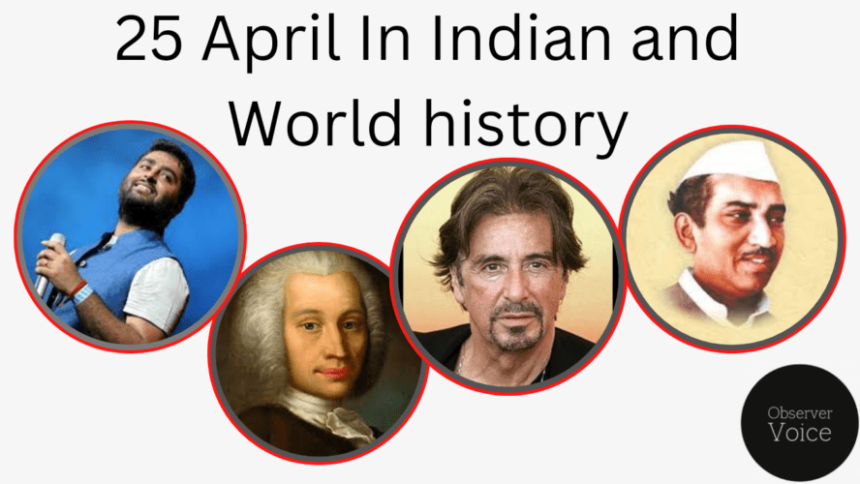April 4th is a date rich in historical significance, marked by notable events, achievements, and observances that have shaped societies and cultures around the world. From pivotal moments in history to celebrations of cultural heritage and awareness campaigns, April 4th offers a diverse tapestry of events worth exploring. In this essay, we will delve into historic events and special days observed on April 4th, spanning various themes and contexts.
- Assassination of Martin Luther King Jr. (1968): One of the most significant events in American civil rights history occurred on April 4th, 1968, with the assassination of Dr. Martin Luther King Jr. Dr. King, a prominent leader in the African American civil rights movement, was shot and killed while standing on the balcony of the Lorraine Motel in Memphis, Tennessee. His tragic death sent shockwaves across the nation and led to widespread mourning, protests, and a renewed commitment to achieving racial equality and justice.Dr. King’s legacy continues to inspire generations as his advocacy for nonviolent protest, civil disobedience, and social justice remains relevant in contemporary struggles for equality and human rights.
- International Day for Mine Awareness and Assistance in Mine Action: Recognized by the United Nations, April 4th is observed as the International Day for Mine Awareness and Assistance in Mine Action. This day serves to raise awareness about the threats posed by landmines and explosive remnants of war, as well as to promote efforts for mine clearance, victim assistance, and mine risk education in conflict-affected areas.Organizations, governments, and communities worldwide use this day to highlight the importance of mine action in saving lives, protecting civilians, and supporting post-conflict reconstruction and development efforts.
- Formation of NATO (1949): On April 4th, 1949, the North Atlantic Treaty Organization (NATO) was established with the signing of the North Atlantic Treaty in Washington, D.C. NATO was created as a collective defense alliance among North American and European countries to counter the threat of Soviet expansionism during the Cold War.NATO’s core principles include collective defense, mutual cooperation, and the promotion of democratic values and security among member states. Over the decades, NATO has evolved to address emerging security challenges, including terrorism, cyber threats, and regional instability.
- Birth of Maya Angelou (1928): Celebrated author, poet, and civil rights activist Maya Angelou was born on April 4th, 1928, in St. Louis, Missouri, USA. Angelou’s literary works, including her acclaimed autobiography “I Know Why the Caged Bird Sings,” have resonated with readers globally, addressing themes of identity, resilience, and social justice.Angelou’s contributions to literature and her advocacy for equality and cultural understanding have earned her numerous awards, honorary degrees, and a lasting legacy as a voice of inspiration and empowerment.
- First Modern Olympics (1896): April 4th marks the opening of the first modern Olympic Games on April 6th, 1896, in Athens, Greece. While the official opening ceremony took place on the 6th, preparations and preliminary events began on April 4th, heralding the revival of the ancient Olympic tradition in the modern era.The modern Olympics, featuring athletes from various nations competing in sports and promoting international friendship and sportsmanship, have since become a symbol of unity, athleticism, and global cooperation.
- United States Civil Rights Act of 1968: Also known as the Fair Housing Act, this landmark legislation was signed into law by President Lyndon B. Johnson on April 11th, 1968, following the assassination of Dr. Martin Luther King Jr. The act aimed to address housing discrimination based on race, color, religion, or national origin, prohibiting practices such as racial segregation in housing and discriminatory lending practices.The Civil Rights Act of 1968 expanded upon previous civil rights legislation and represented a significant step forward in the ongoing struggle for equal rights and opportunities for all Americans.
- International Day of Sport for Development and Peace: Recognized by the United Nations, April 6th (adjacent to April 4th) is observed as the International Day of Sport for Development and Peace. This day highlights the role of sports in promoting education, health, social inclusion, and peace-building efforts worldwide.Sporting events, community initiatives, and advocacy campaigns on this day emphasize the transformative power of sports in fostering cooperation, resilience, and mutual respect across diverse cultures and communities.
- First Contact with AIDS Patient (1981): On April 4th, 1981, the Centers for Disease Control and Prevention (CDC) in the United States reported the first cases of a rare form of pneumonia in young gay men, later identified as acquired immunodeficiency syndrome (AIDS). This event marked the beginning of the AIDS epidemic, which would go on to become a global health crisis impacting millions of people worldwide.The identification of AIDS sparked efforts in medical research, public health interventions, and advocacy for HIV/AIDS awareness, prevention, and treatment, shaping healthcare policies and practices for decades to come.
- United Nations Children’s Fund (UNICEF) Founding (1946): UNICEF, the United Nations agency dedicated to promoting the rights and well-being of children worldwide, was founded on December 11th, 1946. However, April 4th is recognized as UNICEF Day, celebrating the organization’s ongoing efforts to protect children’s rights, provide humanitarian aid, support education and healthcare initiatives, and advocate for policies benefiting children and families in need.UNICEF’s work spans across nutrition, immunization, education, child protection, and emergency response, making a positive impact on the lives of millions of children in diverse contexts globally.
- World Rat Day: On a lighter note, April 4th is also celebrated as World Rat Day by rat enthusiasts and pet owners worldwide. This unofficial holiday honors pet rats and promotes responsible rat ownership, education about these intelligent and affectionate creatures, and appreciation for their companionship.Rat-themed events, social media campaigns, and community gatherings occur on World Rat Day, fostering camaraderie among rat lovers and showcasing the positive aspects of rat companionship as pets.
March 4th in Indian history may not be as widely recognized as some other dates, but it is still associated with significant events and personalities that have left a mark on the nation’s history. Let’s delve into some notable events and milestones linked to March 4th in Indian history:
- Birth of Varahagiri Venkata Giri (1894): Varahagiri Venkata Giri, popularly known as V. V. Giri, was born on March 4th, 1894, in Berhampur, Odisha. He played a prominent role in Indian politics and served as the fourth President of India from 1969 to 1974. Prior to his presidency, Giri held various positions in the Indian National Congress and the trade union movement. He was known for his advocacy of labor rights and social justice.
- Formation of Tripura State (1972): On March 4th, 1972, Tripura attained statehood and became a full-fledged state of India. Located in northeastern India, Tripura had previously been a union territory before its elevation to state status. The formation of Tripura as a state marked an important milestone in the political and administrative evolution of the region.
- Indian National Congress Session in Calcutta (1928): The Indian National Congress, a pivotal organization in India’s struggle for independence, held its annual session in Calcutta (now Kolkata) on March 4th, 1928. The session is notable for the adoption of the “Nehru Report,” which outlined the Congress Party’s vision for constitutional reforms and self-government within the British Empire.
- Birth of Dr. J.B. Kripalani (1888): Acharya J.B. Kripalani, a prominent Indian freedom fighter, socialist leader, and politician, was born on March 4th, 1888, in Hyderabad, Sindh (now in Pakistan). Kripalani played a crucial role in the Indian independence movement and later became the President of the Indian National Congress. He was known for his commitment to nonviolence and social reforms.
- Indian Space Research Organization (ISRO) Milestone: While not specifically on March 4th, it is worth noting that India’s space agency, ISRO, has achieved several milestones in early March. For instance, on March 3rd, 1987, ISRO successfully launched the INSAT-1B satellite, marking a significant advancement in India’s space capabilities.
- Cultural and Social Events: Apart from political and historical events, March 4th also witnesses various cultural, social, and educational activities across India. Schools, colleges, and cultural organizations often organize events such as seminars, exhibitions, and performances to celebrate arts, literature, and local heritage.
- Observances and Commemorations: While there are no specific national observances designated for March 4th in India, the date may coincide with regional or community-based observances, festivals, or remembrances. Local communities and organizations may hold events to honor local leaders, historical milestones, or cultural traditions.
Overall, while March 4th may not be as prominently associated with major national events in India compared to other dates, it still holds significance in terms of political developments, cultural activities, and the contributions of notable personalities to India’s history and progress. It serves as a reminder of the diverse and dynamic tapestry of events and achievements that shape India’s rich historical narrative.






